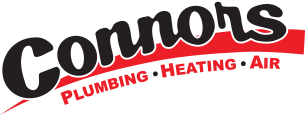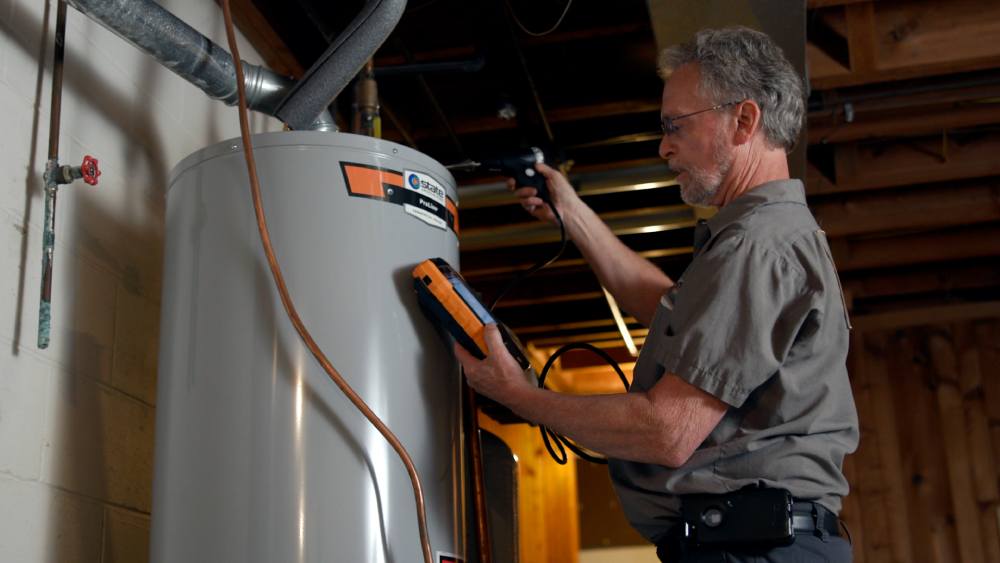Is your water heater getting the regular attention it needs? For many Waseca homeowners, water heaters tend to stay out of sight and out of mind—until the hot water suddenly runs out or something stops working. Suddenly, there’s no warm shower, no sanitized dishes, and laundry that can’t be washed properly.
Like any hardworking appliance, your water heater needs routine maintenance to stay reliable. A professional water heater tune-up helps prevent wear, improve efficiency, and extend the life of your system—whether you have a traditional tank or tankless model. In this post, we’ll explore how Waseca’s hard water impacts your system, what a tune-up typically includes, and the five benefits of staying on top of this important service.
Understanding Water Heater Maintenance in Waseca
No matter what kind of water heater you have, regular maintenance is essential to keep it running smoothly and efficiently. Water heaters come in two main types: traditional tanked and tankless (“on-demand”) systems. While the different systems operate differently, they both face challenges like mineral buildup from hard water and system strain that challenges their efficiency.
Hard Water Challenges in Waseca
Water in the Waseca area ranks as “moderately hard,” meaning that it contains higher levels of minerals like calcium and magnesium. According to the US Geological Survey and Minnesota health data, hardness levels in nearby Owatonna can often range from 10 to 20 grains per gallon—well above the 7 grains per gallon threshold that defines “hard” water.
The minerals in hard water don’t just affect your water heater—they can impact your entire plumbing system. Over time, mineral deposits can accumulate inside pipes and fixtures, leading to blockages and wear. Seasonal temperature changes in Waseca also add stress, making it especially important to keep your water heater well-maintained for reliable, efficient hot water year-round.
Tank vs. Tankless Systems: Why Both Need Tune-Ups
Tanked systems store a large amount of hot water in a tank. Over time, minerals from hard water settle at the bottom of this tank, forming sediment that reduces efficiency and causes extra wear on the system.
Tankless systems, also called on-demand systems, don’t store water. Instead, they heat water as it flows through the unit. But minerals can still accumulate inside the heating elements and pipes, which can lower performance and affect the quality of your water.
Routine tune-ups help both tanked and tankless systems stay efficient and reliable, extending their lifespan and reducing energy use.
What Is a Water Heater Flush—and Why It Matters in Waseca
A water heater flush is key maintenance specific to tanked water heaters: the tank is drained and cleared to remove sediment and mineral buildup. The layer of sediment buildup at the bottom of the tank is “flushed” out. This clearing of deposits improves heating efficiency, reduces strain on the system, and helps prevent damage to internal parts.
For tankless water heaters, which don’t store water in a tank, maintenance focuses on descaling or cleaning the heat exchanger. This process removes mineral deposits that accumulate inside the heating elements and pipes, which can lower performance and affect water quality. Descaling keeps the system running efficiently and extends its lifespan.
5 Benefits of Regular Water Heater Maintenance
With regular maintenance, your water heater can last longer, perform better, and help lower your utility bills.
1. Lower Energy Bills
When your water heater is clean and running efficiently, it uses less energy to heat your water. That means lower monthly utility bills without changing your habits.
2. Longer Appliance Life
A well-maintained water heater is less likely to fail early. Routine tune-ups can help extend its lifespan—sometimes adding several extra years of use.
3. Consistent Hot Water
If you’ve noticed lukewarm showers or delays in getting hot water, your water heater might be struggling. A tune-up helps restore performance, ensuring hot water is ready when you need it.
4. Fewer Emergencies
Catching small problems early—such as corrosion or worn-out parts—can help prevent leaks, breakdowns, and expensive emergency repairs.
5. More Peace of Mind
With one quick service visit, you can feel confident that your water heater is safe, efficient, and ready to keep up with your home’s hot water needs.
What Happens If You Skip a Water Heater Tune-Up?
Putting off maintenance might seem harmless, but it can lead to poor water quality and damage to the whole system, including:
- Sediment buildup reduces efficiency and shortens the lifespan of your system.
- Corrosion inside the tank leads to rusty or discolored water. Sediment and debris can also impact water quality and the odor of your water.
- Worn parts force the system to work harder, resulting in increased energy consumption. Over time, this inefficiency can lead to higher utility bills.
- Unresolved issues can turn into unexpected breakdowns when you need hot water the most. Minor problems can quickly escalate, causing leaks, flooding, and other extensive damage. This could leave you and your loved ones without hot water while you await emergency repairs.
Regular tune-ups help prevent these problems—and they’re a lot more affordable than a full replacement.
What’s Included in a Water Heater Tune-Up—and Why It’s Worth It
Regular water heater tune-ups are how you protect the longevity and health of your system. A tune-up lowers energy use, reduces the risk of unexpected repairs, and keeps hot water flowing reliably throughout your home.
So, what does a professional tune-up actually involve? It typically includes:
- Flushing out sediment and mineral buildup
- Checking the thermostat and heating elements
- Testing the pressure relief valve for safety
- Inspecting for leaks, corrosion, or faulty parts
- Making adjustments for temperature and efficiency
Together, these steps help keep your water heater running safely and dependably so it can do its job without interruption.
Time to Schedule Yours? Here’s Why It Matters
Don’t wait until you’re stuck in a cold shower or with a flooded utility room. If it’s been a year (or longer) since your last water heater check-up, now’s the time. If your home has hard water, both tanked and tankless water heaters may need tune-ups more often:
- For tanked water heaters, annual tune-ups are recommended, but if your unit experiences hard water and heavy sediment buildup, consider scheduling tune-ups every 6-9 months.
- For tankless water heaters, a tune-up every 1-2 years is recommended, but an annual tune-up may be more beneficial to prevent mineral deposits from affecting system performance.
Additionally, if you notice signs like rusty water, unusual noises, or inconsistent hot water, it’s advisable to get your water heater inspected sooner.
Call Our Water Heater Experts in Waseca, MN, Today!
If your water heater is showing signs of wear or it’s time for maintenance, Connors Plumbing, Heating & Air is here for Waseca homeowners. Our skilled technicians provide thorough inspections, flushing, and tune-ups to improve efficiency and prevent breakdowns. Don’t wait for an emergency—schedule your water heater tune-up with Connors today! We also offer a full range of plumbing services to keep your home running smoothly all year long.

